
It’s probably the height of obviousness to say that movies are pure illusion, but it can be hard to see that sometimes. For all the superhero movies being released these days, there are countless other films — recent Oscar nominee King Richard, is a good example — that attempt to tell biographical stories in ways that are true to life. Even so, the strange act of watching a person on screen pretending to be a different person is at the heart of watching movies. That’s probably why it’s even more weird when we get a chance to experience those rare and special films in which actors play themselves.
The new film The Unbearable Weight of Massive Talent is one of these films. In it, Nicolas Cage plays, well, Nicolas Cage. Specifically, he plays a cash-strapped version of himself in which he agrees to attend the birthday party of a superfan (Pedro Pascal) for money and ends up going undercover with the CIA. In honor of the release of this film, what follows is a selection of some of the best and most interesting movies in which actors play themselves.
I’m not talking about documentaries. I’m not even talking about cameos — David Bowie’s moment as a runway walk-off judge in Zoolander, for example — where an actor shows up as himself for a single scene. I’ll give honorable mentions to Bill Murray in Zombieland, Neil Patrick Harris in the Harold and Kumar movies, and Keanu Reeves in Always Be My Maybe, but here I’m talking about movies that are built around performances in which actors play themselves. They ask us to think about the truly strange — and probably true! — possibility that at least some of what we do as we go about our lives might properly be considered a kind of acting too.
The Whole Cast in This Is the End (2013)
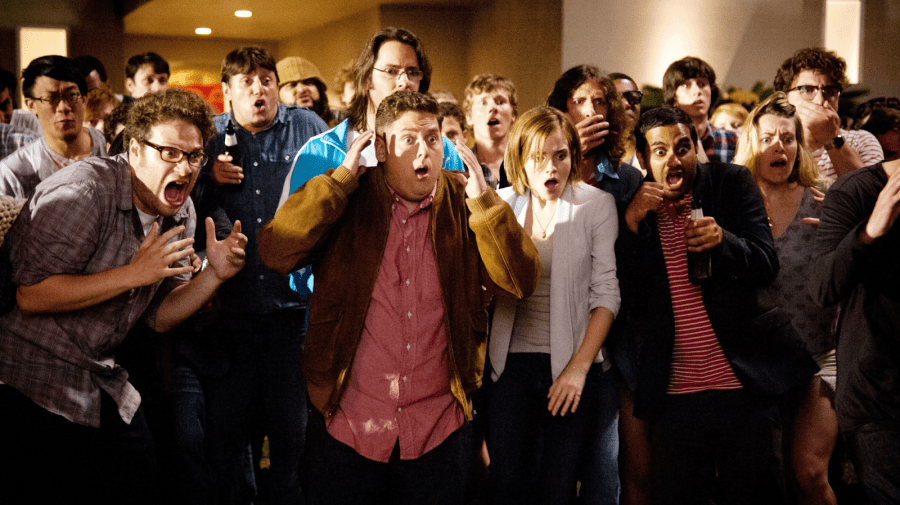
This Is the End, Seth Rogen and Evan Goldberg’s 2013 apocalypse comedy, is the unique movie where the entire cast is playing themselves. It’s a clever idea — if you’re going to imagine what would happen during the fiery ending of life on Earth, you might as well center the story around a bunch of young Hollywood actors at a party.
We tend to think — or at least I do — of movie stars as being separate from the rest of us. For the most part, that perception is probably true. That feeling of distance makes it exciting to spend so much time with a bunch of them in the context of this movie. You can’t help but feel a little jolt of excitement watching them in the context of the end of the world — an event so inherently humbling that you start thinking, “You know what? Maybe they are just like us!”
Paul Giamatti in Cold Souls (2009)
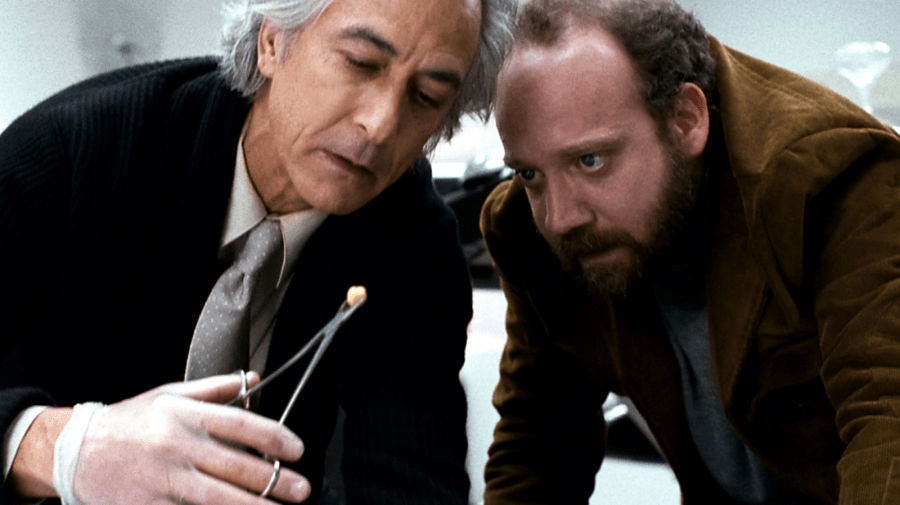
This film from director Sophie Barthes uses a sci-fi premise to explore the pros and cons of having a soul. Paul Giamatti plays a version of himself as an actor so deeply invested in the characters he plays that he can’t let go of them after he’s done performing. Hilariously, he reads an article about “Soul Storage” in The New Yorker, and we’re off from there on a journey that includes a soul trafficking crime ring in Russia.
I love movies — Eternal Sunshine of the Spotless Mind is another one — where something incredibly wild, like the decoupling of the soul from the body, is going on at what is otherwise a pretty normal doctor’s office. Placing sci-fi elements in a real-world setting just doubles down on the strangeness of thinking about things like the soul in the first place. Having Giamatti play himself is another layer on top of all of this.
Jean-Claude van Damme in JCVD (2008)
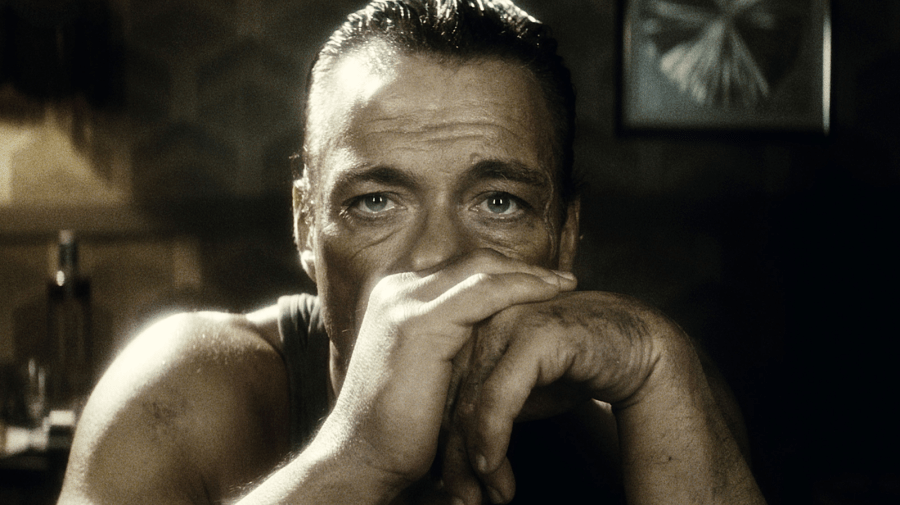
If, like me, you are a career-long fan of the work of Jean-Claude van Damme, you will love this emotional meta-take on the strangeness of being an action movie star. In a performance that was praised by Nicolas Cage himself, van Damme plays himself as an actor fallen on hard times. He’s broke, he can’t get decent roles, and his family life is falling apart as he loses a custody battle for his daughter, who rejects him.
Back in his hometown in Belgium, he is running an errand to the post office to pick up a wire transfer of funds and ends up being part of a group of hostages when a robbery ensues. The bare bones of what happens are a little predictable — van Damme’s dual roles of regular guy and action hero get all jumbled up and confused — but the execution by director Mabrouk el Mechri is totally wild. The crowning moment is a six-minute fourth wall-breaking monologue about van Damme’s drug use, his career, and his struggles. It’s incredibly emotional, which you can’t always say about a van Damme movie.
John Malkovich in Being John Malkovich (1999)
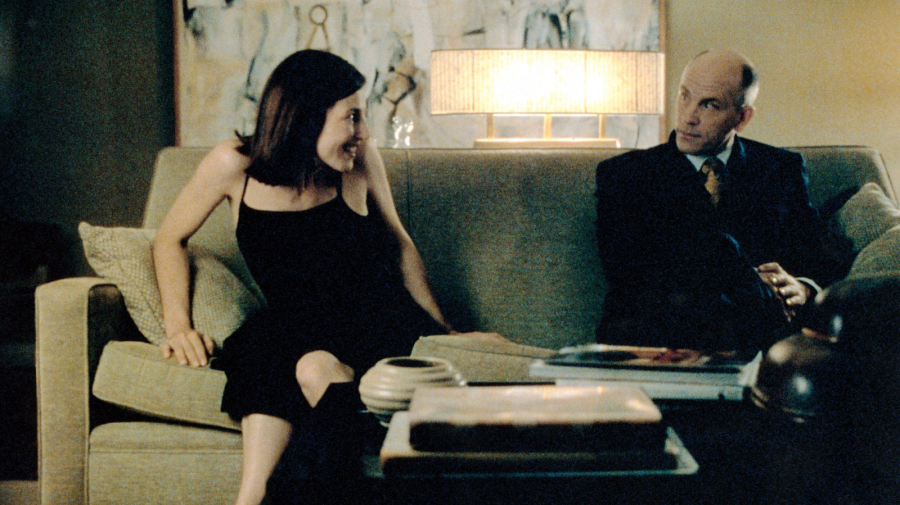
Spike Jonze’s 1999 film, Being John Malkovich, is an absolute mind-warp. The basic premise — which is so bizarre it almost entirely defies synopsis — is that a puppeteer (John Cusack) making ends meet as a file clerk finds a secret portal in the office where he works. That portal leads into the mind of famous actor John Malkovich, who, of course, is played by John Malkovich. At the end of each trip into the mind of Malkovich, the inhabitant is ejected and lands in a ditch on the side of the New Jersey Turnpike.
What Jonze and screenwriter Charlie Kaufman do with that premise is even more wild than anything the previous paragraph implies. Cusack’s puppeteer finds himself able to pull Malkovich’s strings in terrifying ways, but he learns that he’s ultimately a puppet too. In the end, it’s a movie about love, desire, and, maybe most of all, about time, as the decisions the characters make begin to have implications that go beyond the length of even a single human lifespan.
Maggie Cheung in Irma Vep (1997)
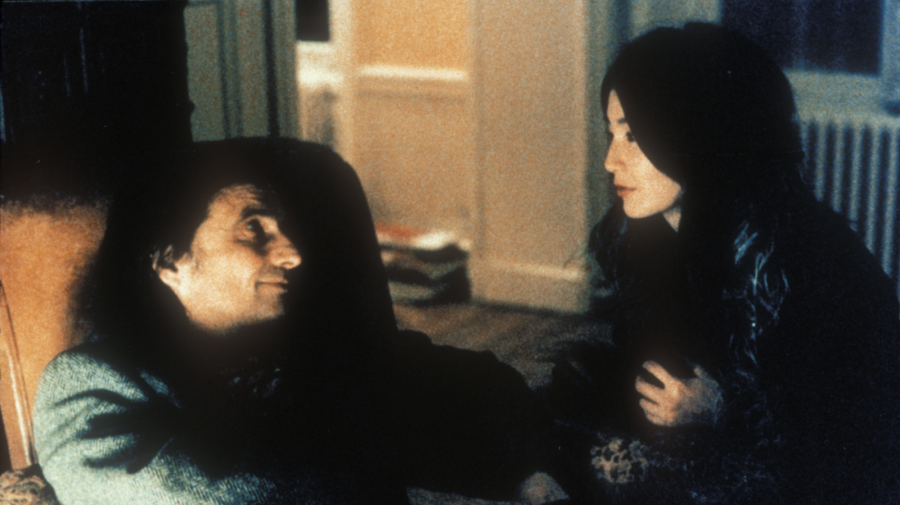
Irma Vep (an anagram for “vampire”) is a French film by director Olivier Assayas that centers around a French director named René Vidal (Jean-Pierre Léaud) trying to remake the classic serial French crime film Les Vampires. The great Hong Kong actress Maggie Cheung gets hired to play Irma Vep, a burglar who spends the movie prowling around in a black latex catsuit.
They’re making a movie about vampires, and the way everyone around Cheung starts to desire her as the movie progresses starts to feel pretty vampiric, too. She’s the irresistible center of the movie, but she feels sort of unknowable, and we learn about the other characters mostly through how they respond to her. We follow Cheung through her experience as an outsider in France, and as Vidal loses control of his movie, Cheung ends up in the strange position of defending Vidal’s choices to the French press and to her fellow cast and crew-members.
Assayas is in the process of remaking Irma Vep as a series for HBO Max featuring Alicia Vikander in the title role. It hasn’t been given a release date yet, but Vikander’s recent comment that “It’s so meta, it’s eating itself” makes it clear that the show will likely be playing with similar themes to the movie in really exciting ways.

 Seth Landman
Seth Landman




